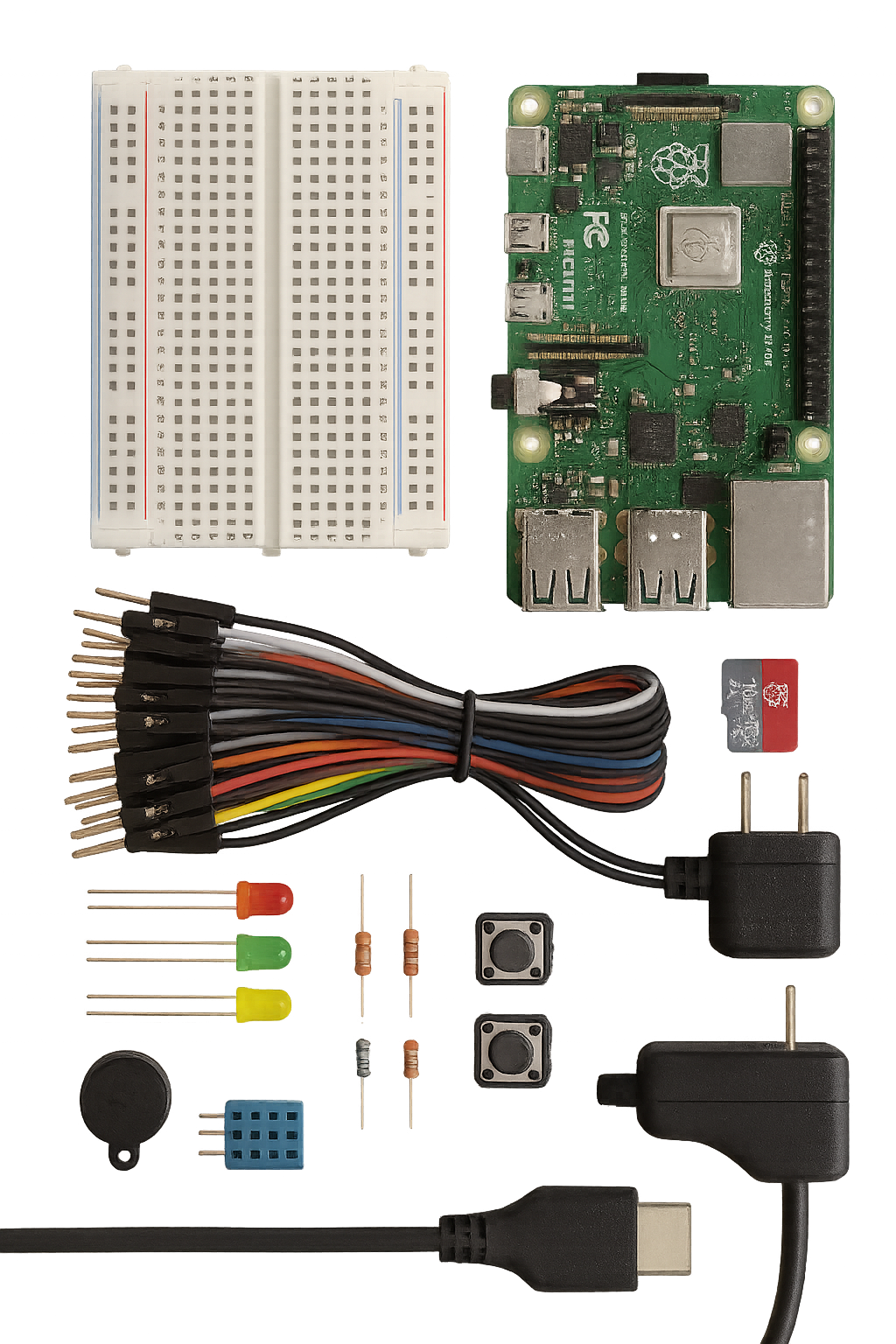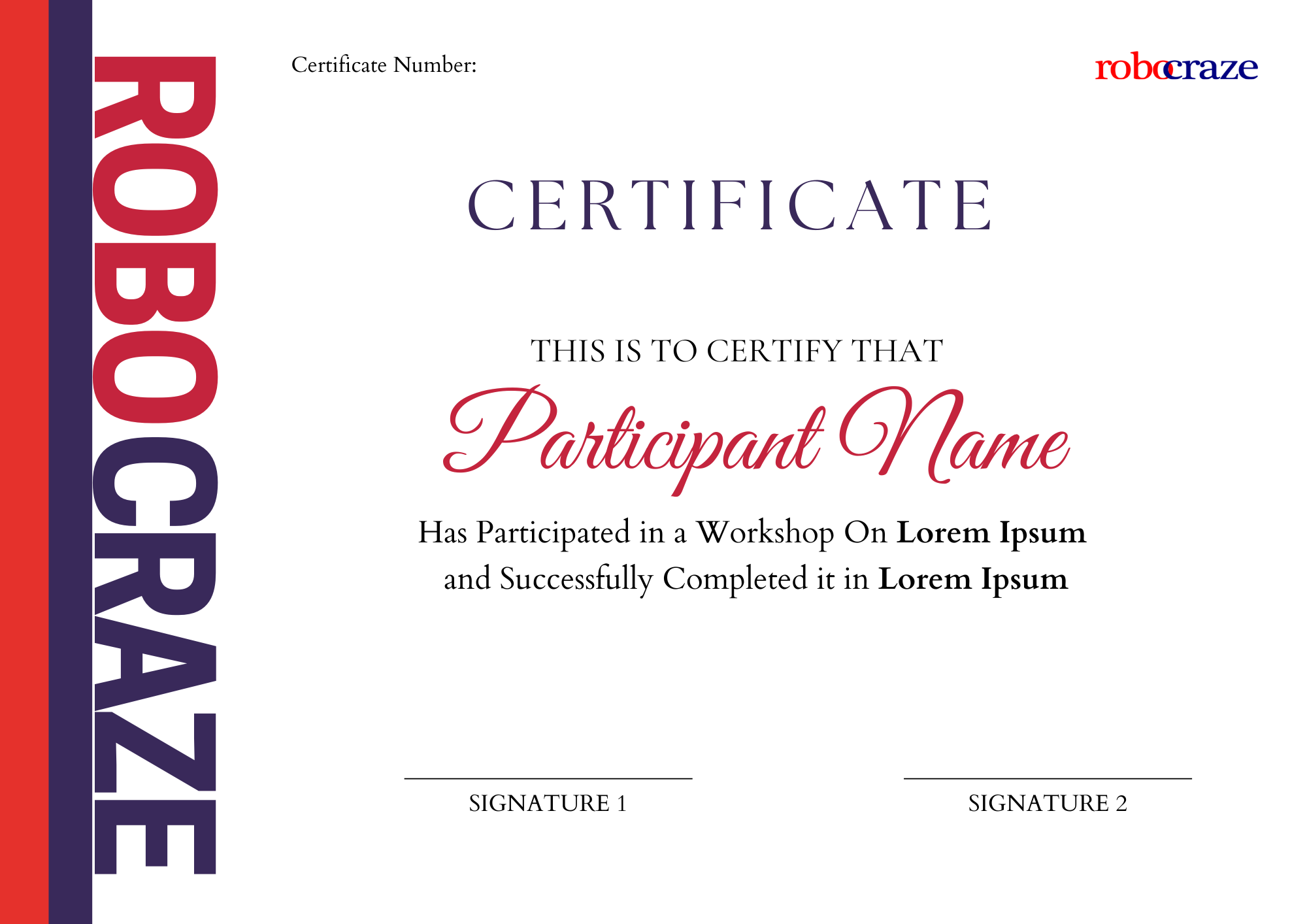

Get a strong grasp of Python fundamentals, including working with data types like strings and lists, writing loops and conditionals to control program flow, and creating functions for reusable code.
Interfacing Hardware with Raspberry Pi
Learn how to use Python libraries such as RPi.GPIO and gpiozero to connect and control hardware components like LEDs, push buttons, buzzers, and sensors through the Raspberry Pi’s GPIO pins.
Hands-On Raspberry Pi Projects







Yes! All participants who complete the workshop will receive a certificate from Robocraze. This certificate serves as a valuable credential to showcase your newly acquired skills in Python programming and Raspberry Pi hardware interfacing, which can be a great addition to your resume or portfolio.
Absolutely! While the workshop primarily uses Raspberry Pi 4 for demonstrations, the projects and Python code are fully compatible with Raspberry Pi Zero and Raspberry Pi 3 models. Some minor differences in setup might exist, but the core concepts and hardware interfacing remain the same.